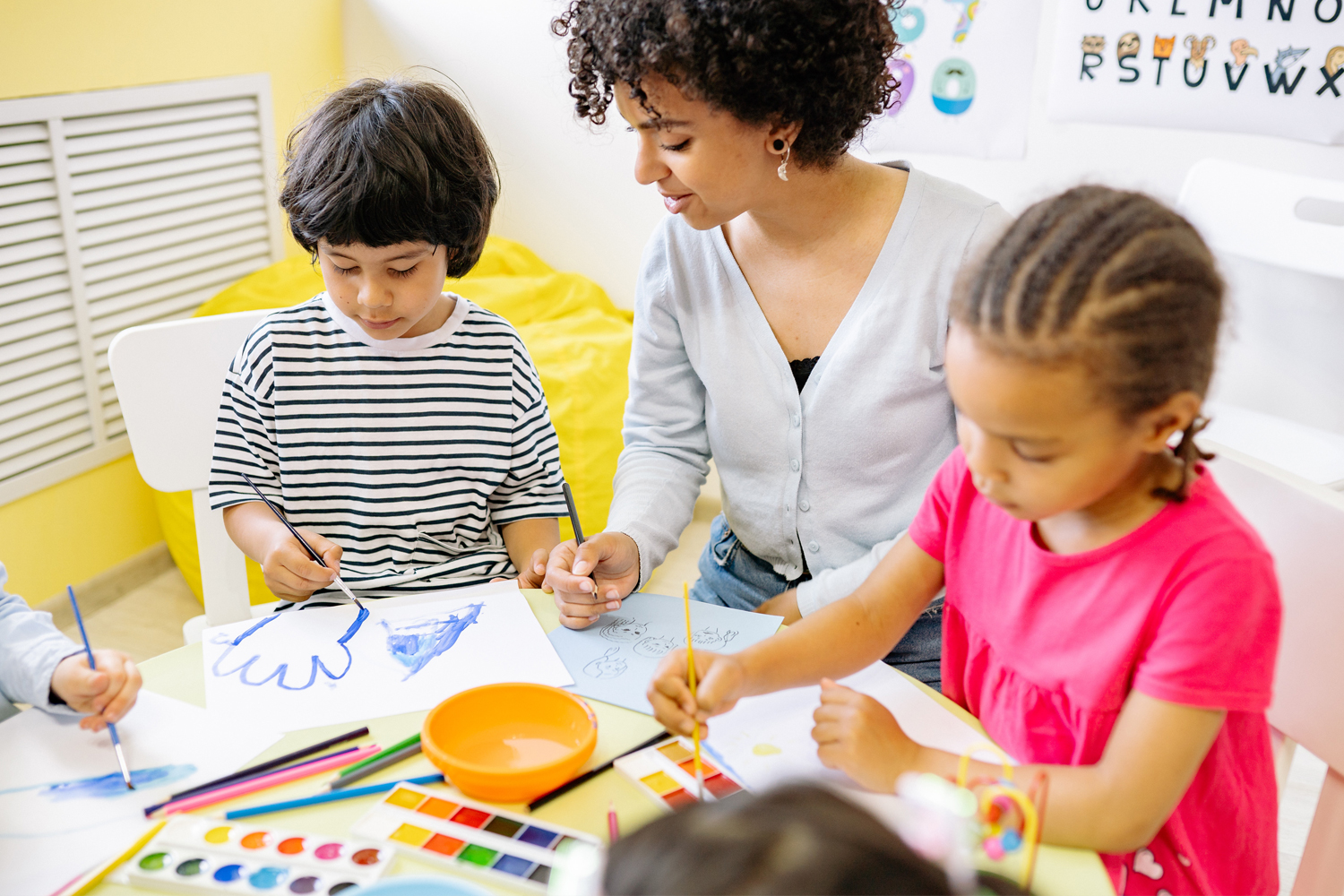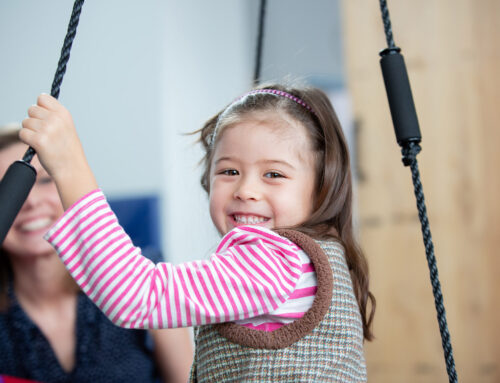There are several reasons why your child may be experiencing behavior meltdowns and challenges. Your children may be experiencing these meltdowns due to:
- Communication issues
- Anxiety
- Physical ailments/sickness
- Sensory processing issues
- Learned behavior
- Family dynamics
Your child’s behavior can be due to many different things, but caregivers can help their child by trying these steps.
- Taking a deep breath and asking your child to do the same. If they get more upset, take a minute or two to just model deep breathing. You can give your child space (if safe) and take a break from demands.
- Try to understand your child’s perspective. This can be hard when you are on a time crunch, but taking the time to remember the why behind the behavior allows you to set aside your own emotions and respond in a supportive way. For example, those children that have sensory processing issues, may be overstimulated in certain situations and meltdowns are their only release. For those children with communication difficulties, they may have a toothache or headache and unable to tell you in any other way but to cry or self harm.
- Set clear limits and consistent boundaries. It is important that caregivers provide consistent rules and expectations. It is very hard for children when rules are only implemented sometimes or at certain households. Parents who live in different households, should communicate to ensure that rules look relatively the same from house to house. Write the rules down on a whiteboard in your kitchen or playroom to help everyone remember!
- Ask for help. If you continue to experience difficulties with managing your child’s meltdowns, consult with your child’s pediatrician and potentially obtain a medical diagnosis. If you have an established therapy team, consult with them on best strategies and if not, consider therapeutic interventions for your child. You can also ask our advice column, Ask Birdie, here.

Therapy services to assist with meltdowns and challenging behavior include:
Remember that when you have a better understanding of why your child is having a meltdown, your child will feel heard and understood. It will also allow you to apply strategies that address the root cause, leading to less meltdowns and happier families!
Interested in learning more?
Take a look at these blogs about challenging behaviors:
Social Skills: A Learned Behavior
How to Promote Turn Taking with a Sibling or Peer
Earliest Foundations of Communication: Expanding Early Communication
Finding Motivation: Losing Challenging Behaviors
ABA Data Collection: Recognizing and Recording Behaviors
Check out our YouTube Beyond the Nest Series:
Supporting the Family and Nurturing the Sibling Relationship
Try these meditations on our YouTube channel:
Breathe Like A Bear
Bunny Breath
Imagine You’re A Tree
Interested in Blue Bird Day services? Call today at 312.243.8487 or enter a contact form here.

Blue Bird Day fosters socialization, sensory regulation, and pre-academic learning in children ages 2-7 years in therapeutic rotations that simulate preschool and kindergarten settings. Our compassionate therapists practice a relationship-based and family-centered approach, provide parent training, and collaborate on goals and individualized intensive treatment plans for your child.
We believe in a collaborative and multi-disciplinary team approach to therapy. A team of occupational therapists, speech-language pathologists, dietitians, developmental therapists, behavioral therapists, physical therapists, and therapeutic assistants are created for each child to ensure child and family are fully supported and the best possible results are achieved.
Options for individualized, group and virtual therapy sessions are available as well.
Want to learn more or you have a specific question? Feel free to connect with us here!



